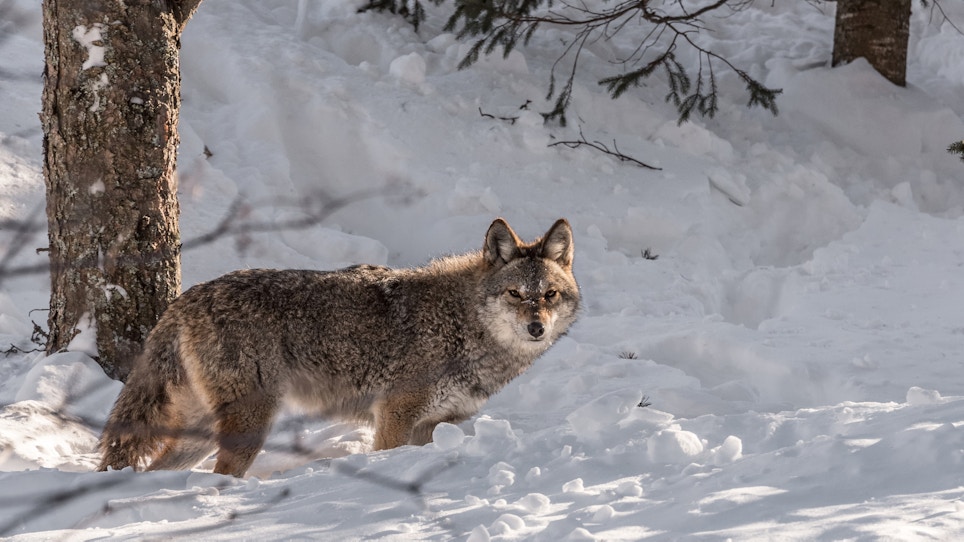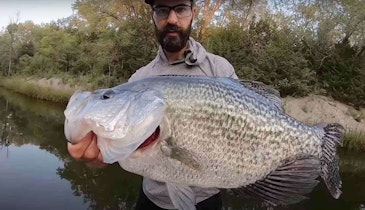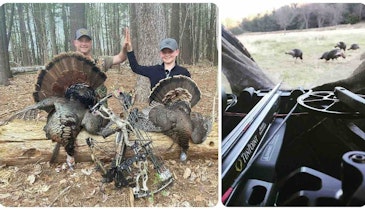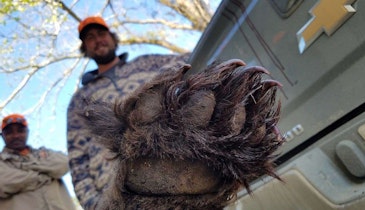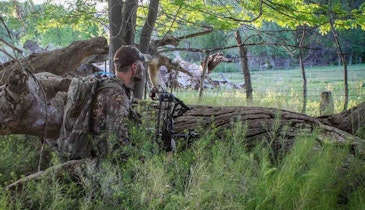A proposed bill in Vermont would change the way the state governs on hunting, fishing and trapping. At least, that’ll be what happens if Rep. James McCollough (D-Chittenden) has his way, the Sportsmen’s Alliance reports. Rep. McCollough has introduced House Bill 336. It would add six “non-consumptive” members to the existing Vermont Fish and Wildlife Board, among other things. The proposed board would deliberately stack non-hunters against the current group who has managed the state well.
McCollough released an open letter on March 3, explaining his ideology behind the proposed bill. In it, he says, “Coyotes are important members of the ecosystem and have evolved together with many of nature’s existing prey species." He later states, “Conservation of the coyote is important to maintaining ecosystem integrity because of the vital role they play as predators.” McCollough fails to mentions coyotes are a non-native invasive species in Vermont.
Currently, coyotes can be hunted year-round in Vermont. Trapping season runs from the fourth Saturday in October until December 31. These decisions are based on research, biology and science.
Vermont hunters, anglers and trappers are the ones currently funding the majority of fish and wildlife conservation for all of the state’s citizens through hunting, trapping and fishing licenses sales as well as the Pittman-Robertson Act (PRA). The PRA collects excise tax dollars that come from ammunition, firearms, archery, fishing gear and other products purchased. And it apportions the money to state wildlife agencies for conservation efforts. The Sportsmen’s Alliance adamantly protests that setting up government boards that compete with fish and wildlife experts is “wasteful, counterproductive and ignores the many successes that the partnership between Vermont sportsmen and the Department of Fish and Wildlife has produced.”
Under House Bill 336 ...
- Six non-consumptive members would be added to the Fish and Wildlife Board, renaming the body the Fish and Game Board. This would bring the number of board members to 14.
- A competing “Wildlife Management Advisory Board” would be created to advise the legislature and the Commissioner of Fish and Wildlife on issues involving the protection, propagation, management and conservation of all fish and wildlife in the state.
- The six-member board would consist of one sportsman/sportswoman, two non-consumptive users, one wildlife and one fisheries biologist who are not employed by the Department of Fish and Wildlife and one member of law enforcement not employed by the department.
- The newly created board would be allowed to review regulations proposed by the Fish and Game Board and the Commissioner of Fish and Wildlife. The Wildlife Management Advisory Board would begin by conducting a review of the department’s current policies to ensure that it is managing fish and wildlife for the benefit of public welfare. The board is empowered to make recommendations to the commissioner and legislature about changes needed to benefit all users of fish and wildlife resources in Vermont.
The Sportsmen’s Alliance has urged Vermont hunters, fishermen and trappers to take action. The organization has a page on its website that eases the process of contacting their State Representative. The proposed bill’s creation of a duplicated government agency is unnecessary. The Vermont Department of Fish and Wildlife manages all fish and wildlife, including game, non-game and endangered species. It’s based on the North American Model of Wildlife Conservation. This model has resulted in the recovery of whitetail deer, wild turkey, bald eagles and other species.
For more information on proposed bills with anti-hunting agendas and what you can do to help stop them, visit www.sportsmensalliance.org.
Featured Photo: iStock
